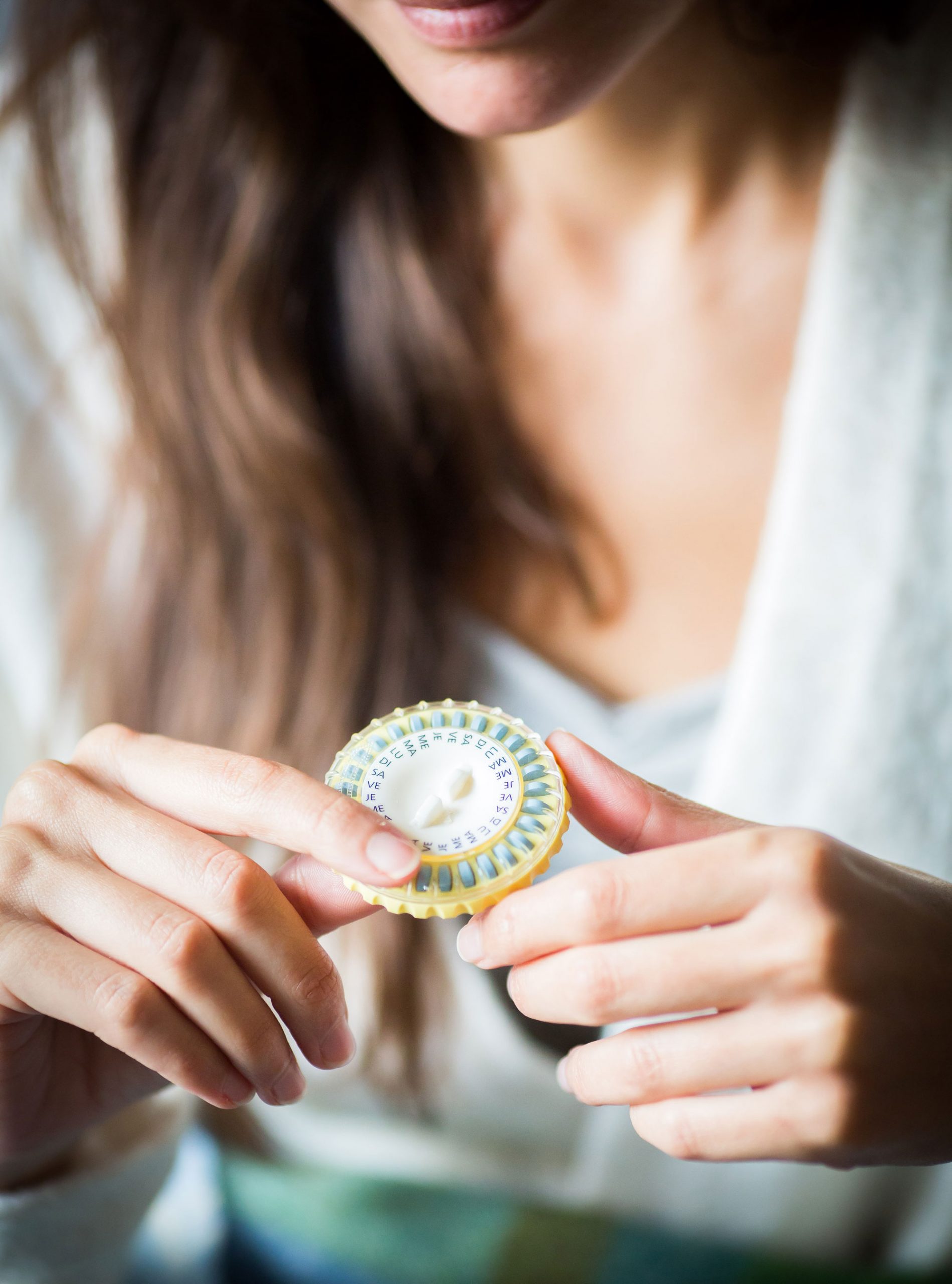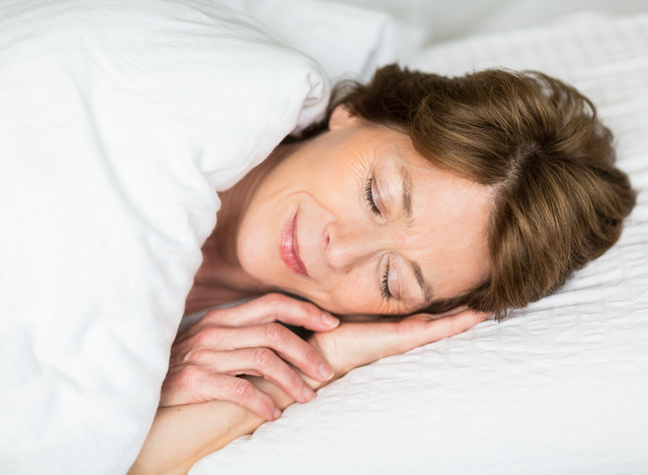7 Reasons To Check Your Hormones

Our hormones are responsible for a lot of changes in our body. They change rapidly in the run up to the menopause, and even fluctuate day-to-day, depending on stress, our monthly cycle, and a whole host of other things.
They're also responsible for keeping everything together, so when they're working in harmony, it's great. When they're not however, you'll probably notice it.
And while they're certainly not the only thing that could be causing changes and problems in our body, they are likely to be one of the potential culprits. As such, it's always good to keep an eye on them and what they're doing, as there definitely some moments where it could be worth getting your hormones properly checked out - as thee could be a sign of a more serious or underlying hormone imbalance problem that needs treatment.
So when, and why, would we need to get our hormones checked? And what are some of the key hormone imbalance symptoms?
1. If your periods are completely debilitating.
If you feel completely normal during the first two weeks of your cycle, but struggle to even get out of bed when your period comes, you should definitely get your hormones checked out at the doctors. Severe cramps and stomach pain around that time could mean something more serious - such as endometriosis, a condition that affects the lining of your womb.
Similarly, if you're experiencing exceptionally heavy periods, this could be another sign that you may be suffering from the condition.
2. You're experiencing low libido

Low levels of the hormone oestrogen could well be responsible for your declining sex drive. Symptoms include vaginal dryness and an unstable mood, which, inevitably, doesn't lend itself well to getting intimate with your partner.
Sign up for the woman&home newsletter
Sign up to our free daily email for the latest royal and entertainment news, interesting opinion, expert advice on styling and beauty trends, and no-nonsense guides to the health and wellness questions you want answered.
If you find yourself suffering from a low sex drive - and you're not within, or approaching the menopause - you could well have imbalanced levels of the hormone. Oestrogen therapy is available and can certainly help, but of course, your doctor would first need to check your hormones to see whether or not this is the case. Get checked out if you're feeling unsure.
3. If you're feeling low, anxious or depressed
If you're hormones are imbalanced, you could go through huge mood swings that leaving you feeling confused and anxious.
While feeling anxious or stressed can of course be a symptom of a busy and hectic life, if there's no evident reason for feeling this way, it could be worth checking your hormones and seeing if you can suss out the problem.
4. If you've noticed dry skin and brittle hair and nails
Low thyroid levels can cause changes in your skin and other parts of your body, and if you notice these parts of your body particularly suffering, it's worth seeing your doctor to investigate whether or not it's because of a thyroid problem. If so, it'll most likely be caused by an overactive thyroid.
5. If you've been feeling way more tired than usual

Much like the above reason, extreme fatigue (for no other reason that you're aware of) could be as a result of a hormone imbalance. Like your skin, feeling extremely tied could be liked to a problem with your thyroid - namely, hypothyroidism. This is an underactive thyroid, and it occurs when your thyroid isn't producing enough of the hormones it needs to.
Although you can't prevent an underactive thyroid from happening, it can often be successfully treated by taking daily hormone tablets, if yours isn't regulating itself.
6. If you've noticed more fat around your middle than usual
The hormone insulin - yes, the same one that causes diabetes - could be responsible for a growing stomach. It's the hormone responsible for breaking down blood sugar, and if it's not working properly, an expanding waistline is most likely where you'll notice it.
So if you've been eating healthily, exercising, and are perhaps expericing other diabetes symptoms such as frequent urination, fatigue, and excessive thirst, you could well have an imbalance with your insulin hormone.
7. If you're experiencing weight gain, hot flushes, muscle pain, and changes in your menstrual cycle
If you recognise any of these, it could simply be that you are coming up to the menopause - a time when our hormones are as frazzled as we feel.
If you're finding any, or all, of these symptoms completely debilitating, it's worth chatting to your doctor and seeing if there are any treatments they can help you with. A popular option is horomone replacement therapy (HRT), which can help to ease some of the most severe symptoms.
Amy Hunt is an experienced digital journalist specialising in homes, interiors and hobbies. She began her career working as the features assistant at woman&home magazine, before moving over to the digital side of the brand where she eventually became the Lifestyle Editor up until January 2022. Amy won the Digital Journalist of the Year award at the AOP Awards in 2019 for her work on womanandhome.com.
-
 We're in awe of Sienna Miller's easy-going and 'piece-y' hairstyle and how perfect it is for spring
We're in awe of Sienna Miller's easy-going and 'piece-y' hairstyle and how perfect it is for springThis laid-back hairstyle is - quite literally - making waves this season
By Naomi Jamieson Published
-
 We never thought we'd see this 'dated' manicure make a chic comeback, but here it is - and we're on board
We never thought we'd see this 'dated' manicure make a chic comeback, but here it is - and we're on boardClean and angular, short square French tips are a go-to this season for a practical but stylish manicure...
By Naomi Jamieson Published
